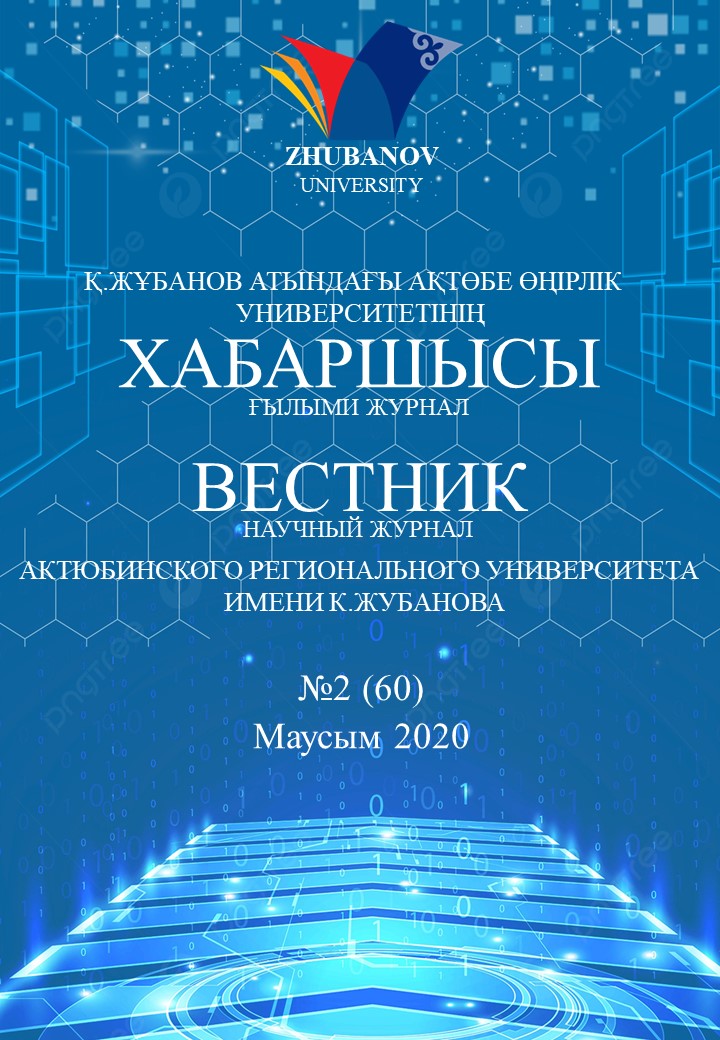Spiritual culture is one of the main values that distinguishes any nation from others. It is known that
any culture that reflects life, the economy, worldview, customs and traditions of an ethnic group is transmitted from
generation to generation through language. Symbols are words that collect and block (encode) various information
about a nation around the world. The meaning of culture can be understood with the help of symbols. While the
upbringing of children is a part of spiritual culture, each nation has its own peculiarities of raising children, norms that
have been formed over centuries. For any tradition to become the norm, it must be preserved and live in the language
of the people for many years. The article discusses the relationship between culture and language, culture and symbol.
In this regard, the symbolic significance of education was revealed, which is a mirror of the spiritual culture of the
Kazakh people.
- Назарбаев Н. Болашаққа бағдар: рухани жаңғыру. // www.akorda.kz.
- Гончаренко Н. Духовная культура: Источники и движущие силы прогресса. – Киев, 1980. – 385стр.
- Атабаева М. Қазақ тілі диалектілік лексикасының этнолингвистикалық негізі. – Алматы: «Білім»,
- ж, - 288 бет.
- Ғабитов Т. Қазақ мәдениетінің рухани кеңістігі. – Алматы: Раритет, 2013. – 400 б.
- Қайдар Ә. Қазақ тілінің өзекті мәселелері. – Алматы: Ана тілі, 1998. – 304 бет.
- Гумбольдт В. Избранные труды по языкознанию.– М.: «Прогресс», 2000. – 400 с.
- Сепир Э. Избранные труды по языкознанию и культурологии. – М.: Наследие, 1993. – 656 с.
- Байтұрсынұлы А. Алты томдық шығармалар жинағы, 1т. Алматы, 2013. – 384б.
- С. Темірбеков. Ұлттық мәдениет дамуының заманауи мәселелері. – Алматы, 2011ж.

